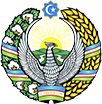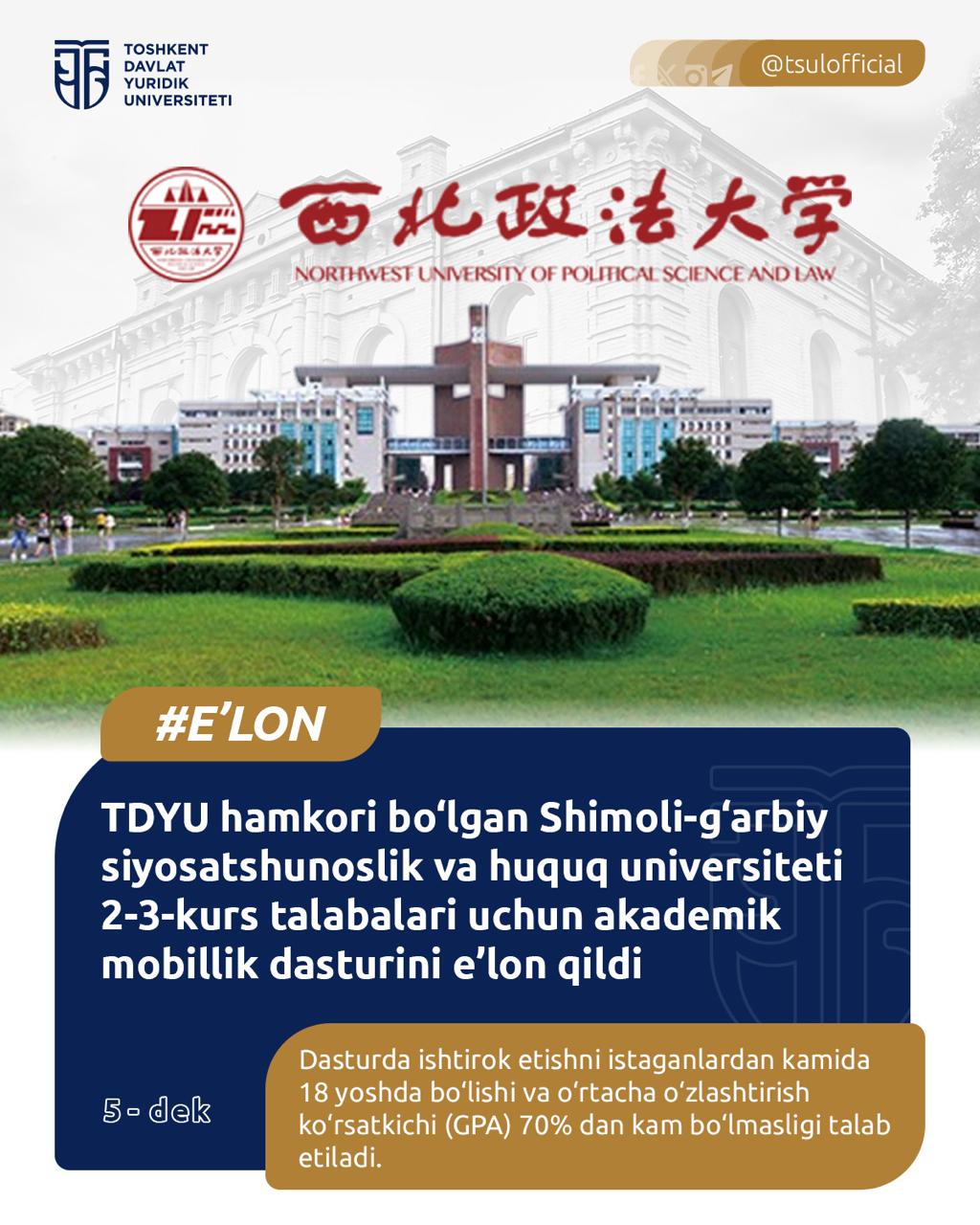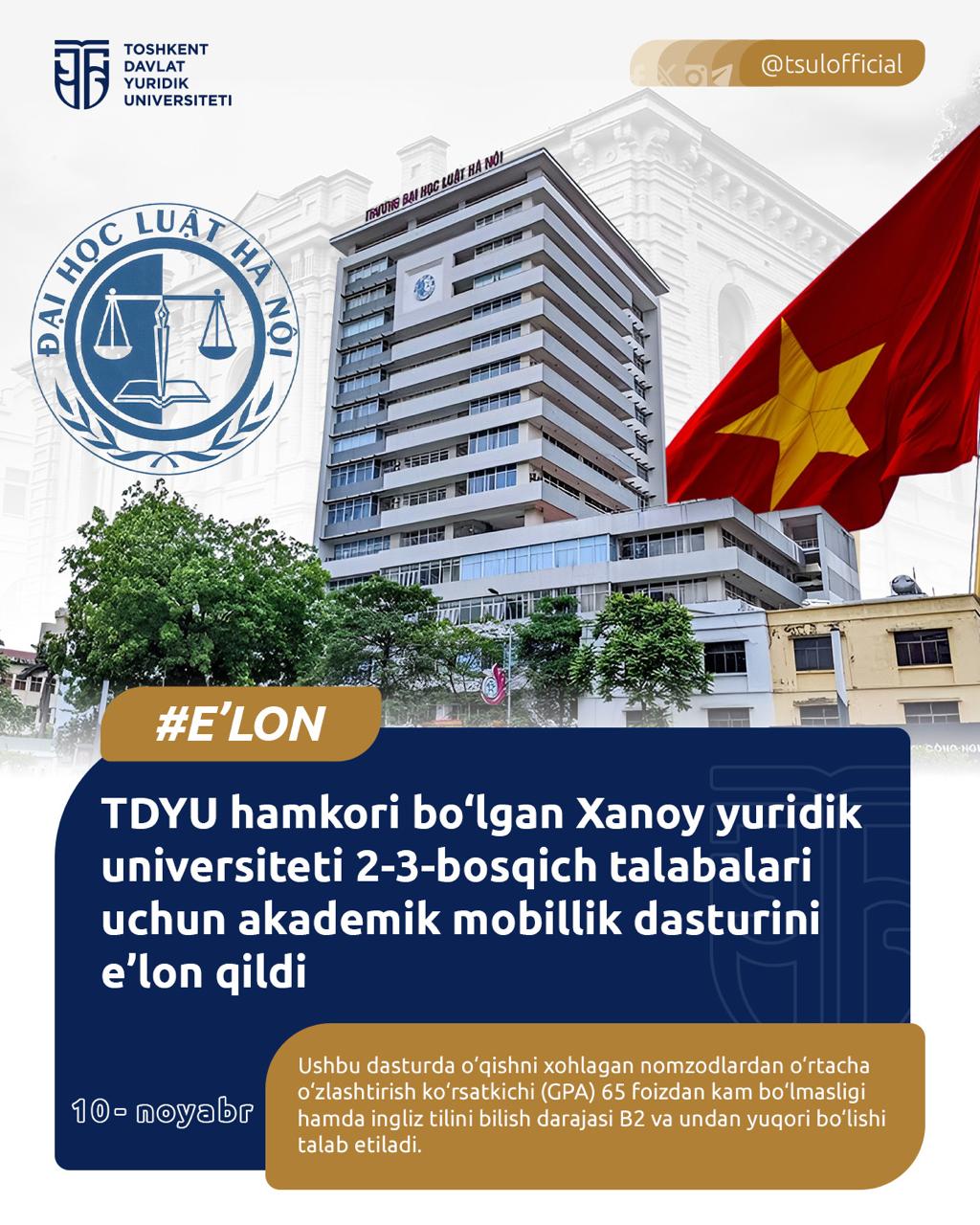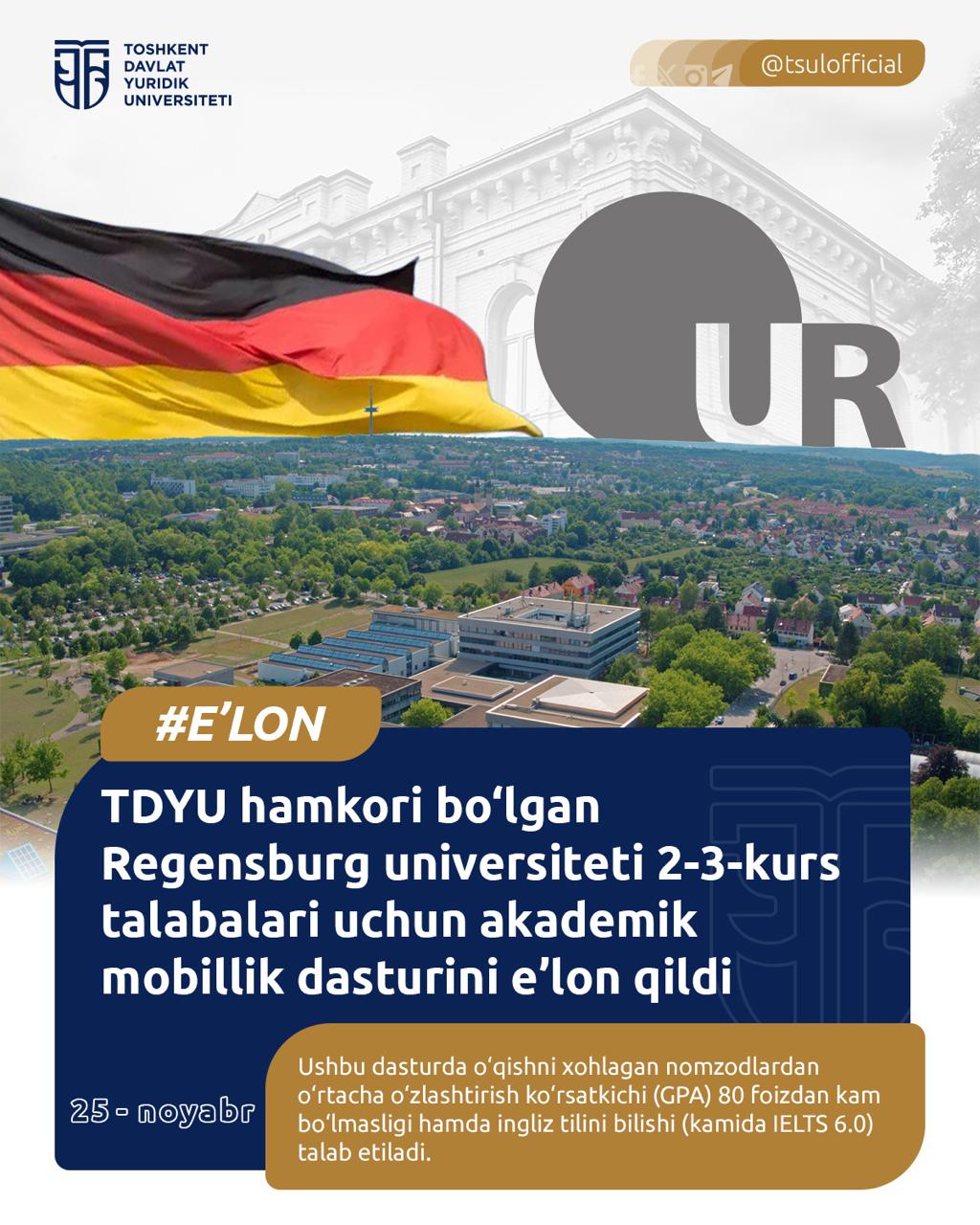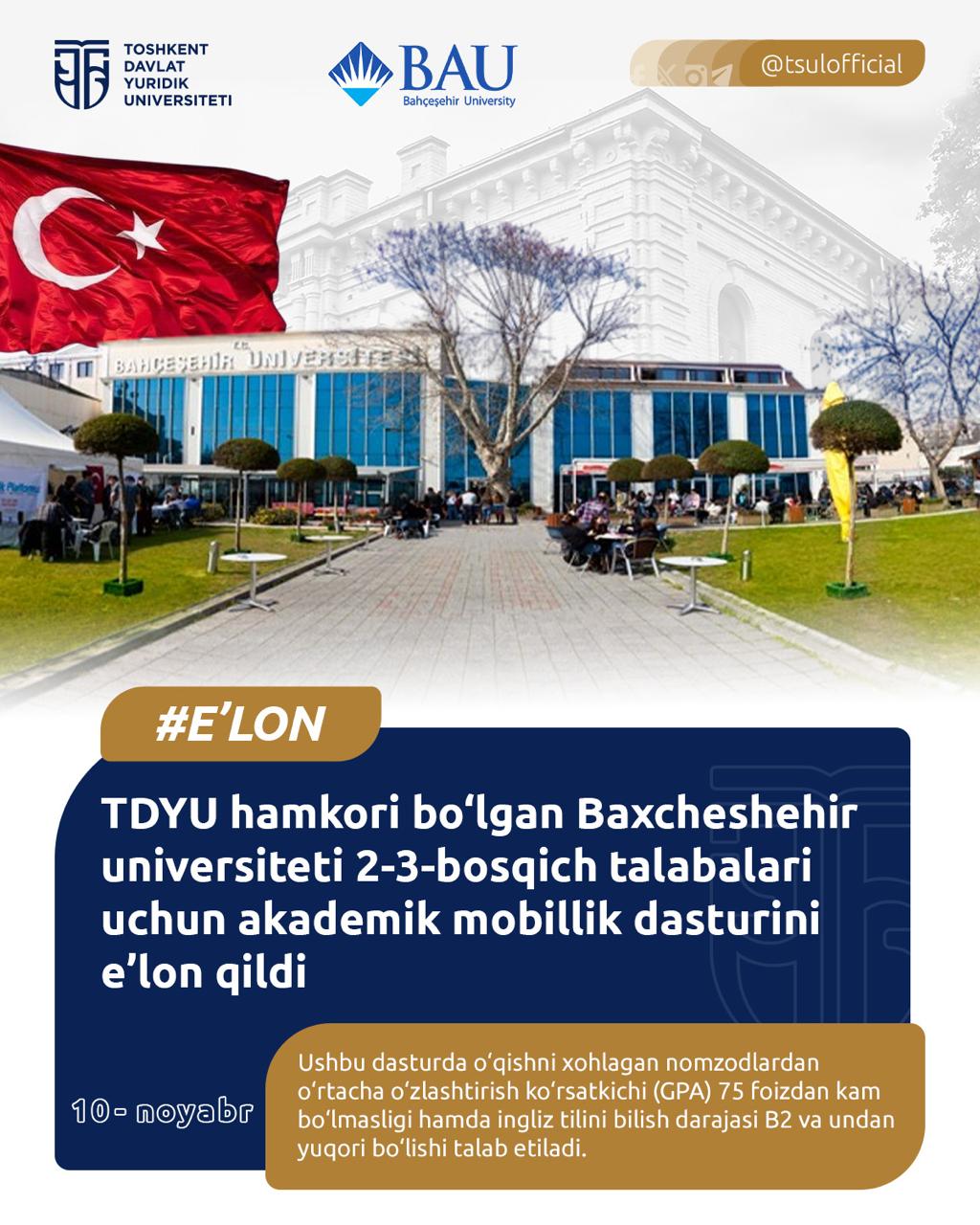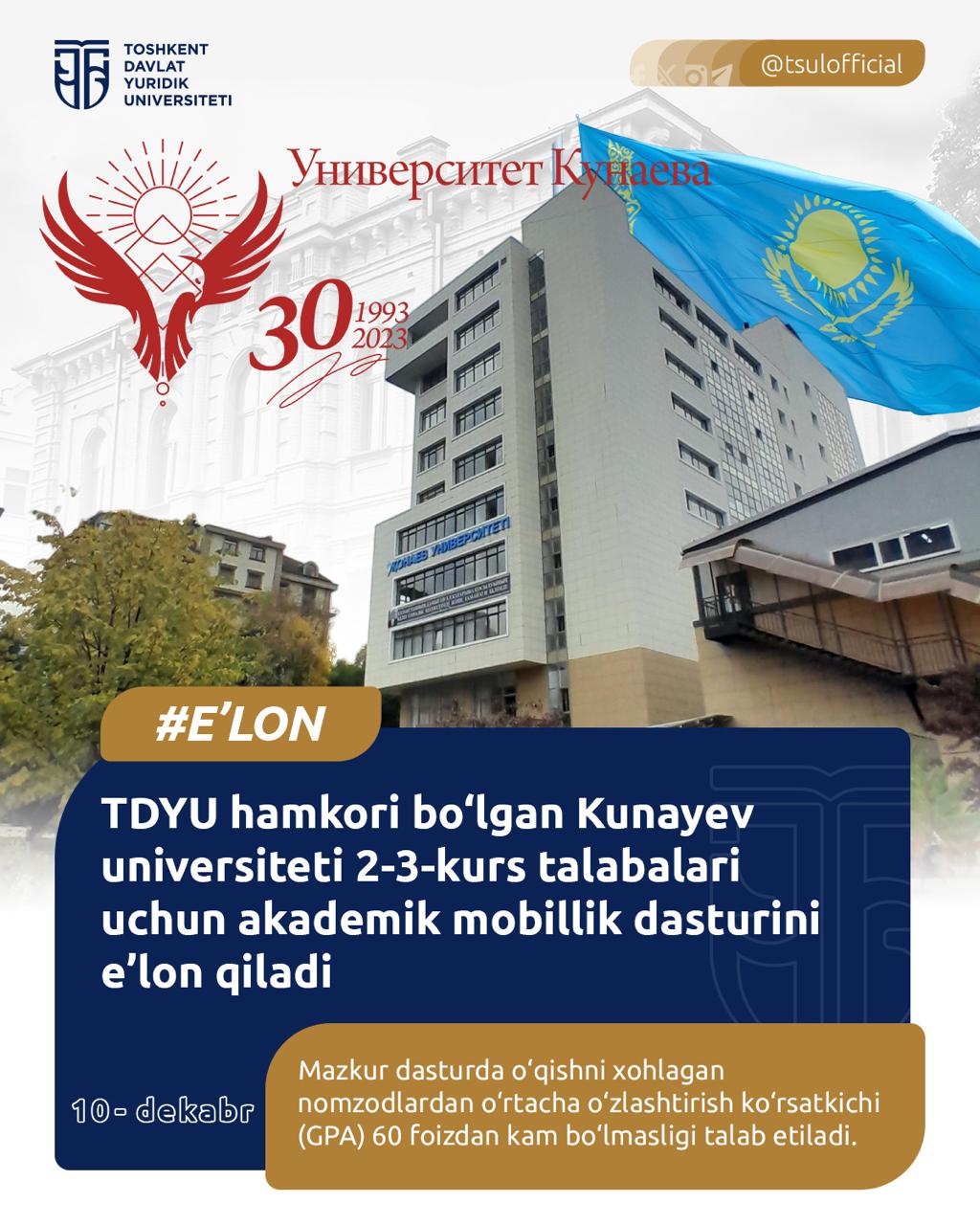University Overview
Faculties Departments Centers Sections Faculties Legal clinic Student dormitory Academic Lyceums under TSULPurchases
Announcement Report for the 1st half 1 - 2022 Quarterly Report 2 - 2022 Quarterly Report 3 - 2022 Quarterly Report I-quarter of 2023 II-quarter of 2023 III quarter of 2023 2025 - yil I-chorak hisoboti Report for the 2nd quarter of 2025 Report for the 3rd quarter of 2025 2024 Financial Report 2023 Financial Report 2021 Financial Report Report for the IV Quarter of 2025Staff
VacanciesContact
Phone bookOverseas internship and short-term courses
Internships for academics Internship for doctoral students and independent researchers Summer and winter schoolsInternational cooperation with national and international NGOs, charitable organizations and other structures
I-II quarter 20244. QUALITY EDUCATION
Working with schools5. GENDER EQUALITY
Women in Science
- Rector greetings
- Objectives and values
- Reports and presentations
- Logo
- Museum
- Mission of the university
- Strategic directions of the university development
- Environmental Sustainability
- Green University
- Images of the university
- Faculties
- Departments
- Centers
- Sections
- Faculties
- Legal clinic
- Student dormitory
- Academic Lyceums under TSUL
- Board
- Rector
- Vice-rectors
- Leadership reception
- Справочный анализ
- License and accreditation
- Statute
- Primary regulations
- Local acts
- Anti-corruption
- Statistics
- University ranking
- Announcement
- Report for the 1st half
- 1 - 2022 Quarterly Report
- 2 - 2022 Quarterly Report
- 3 - 2022 Quarterly Report
- I-quarter of 2023
- II-quarter of 2023
- III quarter of 2023
- 2025 - yil I-chorak hisoboti
- Report for the 2nd quarter of 2025
- Report for the 3rd quarter of 2025
- 2024 Financial Report
- 2023 Financial Report
- 2021 Financial Report
- Report for the IV Quarter of 2025
- Vacancies
- Phone book
University
About the university
University
University Overview
Management organs
Appeals
Official documents
Open Data
Achievements
Purchases
Staff
Contact
Stakeholder engagement policy
- List of graduates
- Our graduates
Education
Undergraduate programs
Graduate programs
Stipend and scholarships
The electronic library
Course schedule
Distance learning
Additional professional education
Final state attestation
Law clinic Street Law
Street Law
Training program
Syllabus
Qualification requirements
Employment and careers
Center for professional legal training by international standards
Our expert advice to local
TSUL Experts
Graduates
Stipend and scholarships
The electronic library
Course schedule
Distance learning
Additional professional education
Final state attestation
Law clinic Street Law
Street Law
Training program
Syllabus
Qualification requirements
Employment and careers
Center for professional legal training by international standards
Our expert advice to local
TSUL Experts
Graduates
Course schedule
Distance learning
Additional professional education
Final state attestation
Law clinic Street Law
Street Law
Training program
Syllabus
Qualification requirements
Employment and careers
Center for professional legal training by international standards
Our expert advice to local
TSUL Experts
Graduates
Additional professional education
Final state attestation
Law clinic Street Law
Street Law
Training program
Syllabus
Qualification requirements
Employment and careers
Center for professional legal training by international standards
Our expert advice to local
TSUL Experts
Graduates
Law clinic Street Law
Street Law
Training program
Syllabus
Qualification requirements
Employment and careers
Center for professional legal training by international standards
Our expert advice to local
TSUL Experts
Graduates
Training program
Syllabus
Qualification requirements
Employment and careers
Center for professional legal training by international standards
Our expert advice to local
TSUL Experts
Graduates
Qualification requirements
Employment and careers
Center for professional legal training by international standards
Our expert advice to local
TSUL Experts
Graduates
Center for professional legal training by international standards
Our expert advice to local
TSUL Experts
Graduates
TSUL Experts
Graduates
- Directory of scientific schools
- General information
- Participation in rankings
- Media about ratings
- Results of entrance exams
- List of questions
- Naoshi Sugiyama
Scientific and innovative activity
Scientific activity
Scientific panel
Science schools
Science schools
Scientific publications
Council of Young Scientists
Scientific fund
Academic Innovation Fund
Legal Tech Laboratory
Commercialization of scientific and innovative developments
Legal Initiatives
TSUL in international rankings
Scientific fund
Academic Innovation Fund
Legal Tech Laboratory
Commercialization of scientific and innovative developments
Legal Initiatives
TSUL in international rankings
Legal Tech Laboratory
Commercialization of scientific and innovative developments
Legal Initiatives
TSUL in international rankings
Legal Initiatives
TSUL in international rankings
Qualifying Exams
Scientific research results
Services
Central Asian Legal Research Fellowship (CALR) scientific partnership program
Grants under state scientific and technical programs
Patents
Code of academic integrity and research ethics
Сonference materials on law
Doctoral studies (DcS) and basic doctoral studies (PhD)
Services
Central Asian Legal Research Fellowship (CALR) scientific partnership program
Grants under state scientific and technical programs
Patents
Code of academic integrity and research ethics
Сonference materials on law
Doctoral studies (DcS) and basic doctoral studies (PhD)
Grants under state scientific and technical programs
Patents
Code of academic integrity and research ethics
Сonference materials on law
Doctoral studies (DcS) and basic doctoral studies (PhD)
Code of academic integrity and research ethics
Сonference materials on law
Doctoral studies (DcS) and basic doctoral studies (PhD)
Doctoral studies (DcS) and basic doctoral studies (PhD)
Research assistantships
Honorary professors
- Overseas universities- partners
- International organizations - partners
- Membership in international associations
- International Olympiads and competitions
- Overseas professors
- Foreign internships
- Joint programs
- Foundation Program
- Student exchange
- Faculty exchange program
- Joint faculty
- Reports on foreign internship— 2023
- Reports on foreign internship— 2024
- Reports on foreign internship— 2025
- International conferences, seminars and round tables
- International scientific projects and scholarships
- Panel of experts (compatriots)
- International stipends
- Partner university stipends
- Internships for academics
- Internship for doctoral students and independent researchers
- Summer and winter schools
- I-II quarter 2024
International relations
International relations
academic mobility
Scientific projects
Overseas internship and short-term courses
Central Asian Student Congress
International cooperation with national and international NGOs, charitable organizations and other structures
Student life
Social immersion
Student clubs
Creative studios and clubs
Student’s union
Scientific schools and circles
Student festivals
Stipends
Olympiads
Students' hostel
Medical Center
Dining facilities
Bookstore
Youth Union at TSUL
Youth Parliament
Spirituality
Ekofaol talabalar
Social activity index
Register of active students
A Step Toward the Future
Creative studios and clubs
Student’s union
Scientific schools and circles
Student festivals
Stipends
Olympiads
Students' hostel
Medical Center
Dining facilities
Bookstore
Youth Union at TSUL
Youth Parliament
Spirituality
Ekofaol talabalar
Social activity index
Register of active students
A Step Toward the Future
Scientific schools and circles
Student festivals
Stipends
Olympiads
Students' hostel
Medical Center
Dining facilities
Bookstore
Youth Union at TSUL
Youth Parliament
Spirituality
Ekofaol talabalar
Social activity index
Register of active students
A Step Toward the Future
Stipends
Olympiads
Students' hostel
Medical Center
Dining facilities
Bookstore
Youth Union at TSUL
Youth Parliament
Spirituality
Ekofaol talabalar
Social activity index
Register of active students
A Step Toward the Future
Students' hostel
Medical Center
Dining facilities
Bookstore
Youth Union at TSUL
Youth Parliament
Spirituality
Ekofaol talabalar
Social activity index
Register of active students
A Step Toward the Future
Dining facilities
Bookstore
Youth Union at TSUL
Youth Parliament
Spirituality
Ekofaol talabalar
Social activity index
Register of active students
A Step Toward the Future
Youth Union at TSUL
Youth Parliament
Spirituality
Ekofaol talabalar
Social activity index
Register of active students
A Step Toward the Future
Spirituality
Ekofaol talabalar
Social activity index
Register of active students
A Step Toward the Future
Social activity index
Register of active students
A Step Toward the Future
A Step Toward the Future
Admission 2025
Admission office
Bachelor's degree
Master's degree
Admission to study on the basis of joint educational programs
Admission of graduates of law colleges
Admission of foreign citizens
Announcements related to the admission process
Admission of graduates of law lyceum
The issues of transfer and restoration of study
Admission of blind applicants
The results of the interview for the admission to training of citizens with at least five years of experience in the sectors of the economy
Toshkent davlat yuridik universitetiga 2025/2026-o'quv yili uchun tabaqalashtirilgan to'lov-kontrakt miqdorlari
Master's degree
Admission to study on the basis of joint educational programs
Admission of graduates of law colleges
Admission of foreign citizens
Announcements related to the admission process
Admission of graduates of law lyceum
The issues of transfer and restoration of study
Admission of blind applicants
The results of the interview for the admission to training of citizens with at least five years of experience in the sectors of the economy
Toshkent davlat yuridik universitetiga 2025/2026-o'quv yili uchun tabaqalashtirilgan to'lov-kontrakt miqdorlari
Admission of graduates of law colleges
Admission of foreign citizens
Announcements related to the admission process
Admission of graduates of law lyceum
The issues of transfer and restoration of study
Admission of blind applicants
The results of the interview for the admission to training of citizens with at least five years of experience in the sectors of the economy
Toshkent davlat yuridik universitetiga 2025/2026-o'quv yili uchun tabaqalashtirilgan to'lov-kontrakt miqdorlari
Announcements related to the admission process
Admission of graduates of law lyceum
The issues of transfer and restoration of study
Admission of blind applicants
The results of the interview for the admission to training of citizens with at least five years of experience in the sectors of the economy
Toshkent davlat yuridik universitetiga 2025/2026-o'quv yili uchun tabaqalashtirilgan to'lov-kontrakt miqdorlari
The issues of transfer and restoration of study
Admission of blind applicants
The results of the interview for the admission to training of citizens with at least five years of experience in the sectors of the economy
Toshkent davlat yuridik universitetiga 2025/2026-o'quv yili uchun tabaqalashtirilgan to'lov-kontrakt miqdorlari
The results of the interview for the admission to training of citizens with at least five years of experience in the sectors of the economy
Toshkent davlat yuridik universitetiga 2025/2026-o'quv yili uchun tabaqalashtirilgan to'lov-kontrakt miqdorlari
- Working with schools
- Women in Science
SDG
1. NO POVERTY
2. ZERO HUNGER
3. GOOD HEALTH AND WELL-BEING
4. QUALITY EDUCATION
3. GOOD HEALTH AND WELL-BEING
4. QUALITY EDUCATION
5. GENDER EQUALITY
6. CLEAN WATER AND SANITATION
7. AFFORDABLE AND CLEAN ENERGY
8. DECENT WORK AND ECONOMIC GROWTH
9. INDUSRY, INNOVATION AND INFRASTRUCTURE
10. REDUCED INEQUALITIES
11. SUSTAINABLE CITIES AND COMMUNITIES
12. RESPONSIBLE CONSUMPTION AND PRODUCTION
13. CLIMATE ACTION
14. LIFE BELOW WATER
15. LIFE ON LAND
16. PEACE, JUSTICE AND STRONG INSTITUTIONS
17. PARTNERSHIPS FOR THE GOALS
8. DECENT WORK AND ECONOMIC GROWTH
9. INDUSRY, INNOVATION AND INFRASTRUCTURE
10. REDUCED INEQUALITIES
11. SUSTAINABLE CITIES AND COMMUNITIES
12. RESPONSIBLE CONSUMPTION AND PRODUCTION
13. CLIMATE ACTION
14. LIFE BELOW WATER
15. LIFE ON LAND
16. PEACE, JUSTICE AND STRONG INSTITUTIONS
17. PARTNERSHIPS FOR THE GOALS
10. REDUCED INEQUALITIES
11. SUSTAINABLE CITIES AND COMMUNITIES
12. RESPONSIBLE CONSUMPTION AND PRODUCTION
13. CLIMATE ACTION
14. LIFE BELOW WATER
15. LIFE ON LAND
16. PEACE, JUSTICE AND STRONG INSTITUTIONS
17. PARTNERSHIPS FOR THE GOALS
12. RESPONSIBLE CONSUMPTION AND PRODUCTION
13. CLIMATE ACTION
14. LIFE BELOW WATER
15. LIFE ON LAND
16. PEACE, JUSTICE AND STRONG INSTITUTIONS
17. PARTNERSHIPS FOR THE GOALS
14. LIFE BELOW WATER
15. LIFE ON LAND
16. PEACE, JUSTICE AND STRONG INSTITUTIONS
17. PARTNERSHIPS FOR THE GOALS
16. PEACE, JUSTICE AND STRONG INSTITUTIONS
17. PARTNERSHIPS FOR THE GOALS

- E-Library
- E-university
- Distance learning
- Schedule of lessons
- For international students
- Scholarships and grants
- Student Services Center
- Street Law
- Academic mobility
- Foreign academics
- Trainings and non-degree programs
- Clubs and clubs, workshops and festivals
- Ask a Question
- Ways to fight corruption
- Educational grants
- Toshkent davlat yuridik universitetida kiyinish tartibi
Current students
Recycling policy of TSUL
.png)
The growth rate of household waste from Tashkent is about 6% per year, and if we won’t take urgent measures, then the amount of household waste will double in 15 years. The only thing that needs to be done is the complete recycling of waste, which is confirmed by the experience of many leading countries of the world. This is related to sorting garbage, and currently the population is implementing pilot projects for sorting garbage into boxes of different colors. Today we are talking about recycling organic waste.
One of the problems is the disposal of fallen leaves. Once they were burned and then sent to public landfills. However, it is a valuable raw material for fertilizers. The management of the improvement of the Almazar district of the capital takes out the fallen leaves into a special compost bin 57 meters long, 17 meters wide and 5 meters deep. Unfortunately, among the leaves there is extraneous waste, thrown by our citizens on the sidewalks and roadsides, and it will continue to sort the leaves, removing plastic and paper from among them. This greatly complicates and slows down the recycling process.
Another positive example: State Unitary Enterprise “Makhsustrans” (Special Transport) has started processing organic waste. Work is underway with Green International on this project. For this, a land plot has been allocated near Tashkent. “Makhsustrans” (Special Transport) brings sorted organic waste from markets, restaurants and other facilities. Here the waste is re-sorted, added to straw, leaves or special manure, collected in rows using German technology and dried within 6 weeks. The leaves are regularly mixed on a specially imported combine harvester from Germany. After six weeks, the ideal fertilizer is ready.
Gardeners and farmers can use this natural and reliable product on their farms.
Tashkent State University of Law has signed a number of agreements with “Makhsustrans” in support of this activity. Through this partnership, TSUL continues to intensify its activities in line with the United Nations Sustainable Development Goals.
Latest news
 Load More Post...
Load More Post...

